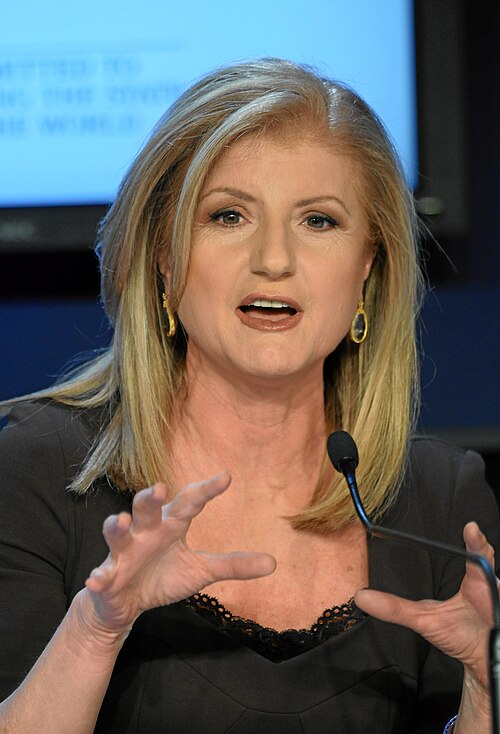 Call us American-ist. Every time we’ve seen a picture of Arianna Huffington, we expected she spoke with an American accent. Her skin undertone seems pink, her hair is blondish, the Huffington name sounds WASP, really American dominant culture, wouldn’t you say?
Call us American-ist. Every time we’ve seen a picture of Arianna Huffington, we expected she spoke with an American accent. Her skin undertone seems pink, her hair is blondish, the Huffington name sounds WASP, really American dominant culture, wouldn’t you say?
Then at last we heard Arianna Stassinopoulos Huffington speak in a video produced by Dreams Across America, below, in which she describes her experience as an immigrant.
Upon closer inspection, we see some slight olive undertones in her skin, Huffington is her married name, plus hair color is easy to change. And lo and behold, she has a glorious Greek accent.
The new chief executive of the Huffington Media Group talks in the video about being born in Greece and going to Cambridge on a scholarship. She recounts moving to America and trying to get rid of her accent–which we interpret as trying to adopt an American accent–because as an immigrant, an accent sets you apart. She says:
I actually tried for a while to get rid of my accent–I haven’t done a very good job as you can hear–and then I kind of embraced it. I realized it was really complicated, changing your accent, and in a sense it’s now part of my identity.
Even the brightest among us sometimes work to change ourselves and fit in, to varying degrees of success, and much of the time–certainly in Huffington’s case–it’s energy wasted. Today she’s known as a charismatic leader, and her accent is part of her charm. She uses her immigrant status to engaging effect, referring to herself as a “Greek peasant girl,” for example.
An accent typically represents so much of who we are. It hints at multi-lingual capabilities, for example. Those who speak more than one language use a part of their brain that monolingual folks often do not. An accent may also indicate a bi-cultural worldview. A broad perspective like this can be extremely helpful in solving complex problems.
So coming out at work as an immigrant can establish your worldliness, bring out your inner charms, and then land you a $315M merger deal. A pretty sweet realization of the American dream.
Were you born in a country outside of where you live? Are you out at work as an immigrant? How does this influence your work experience?
Photo via

 Gretchen Jones won Season 8 of “Project Runway,” and still Mondo Guerra came out on top.
Gretchen Jones won Season 8 of “Project Runway,” and still Mondo Guerra came out on top. 